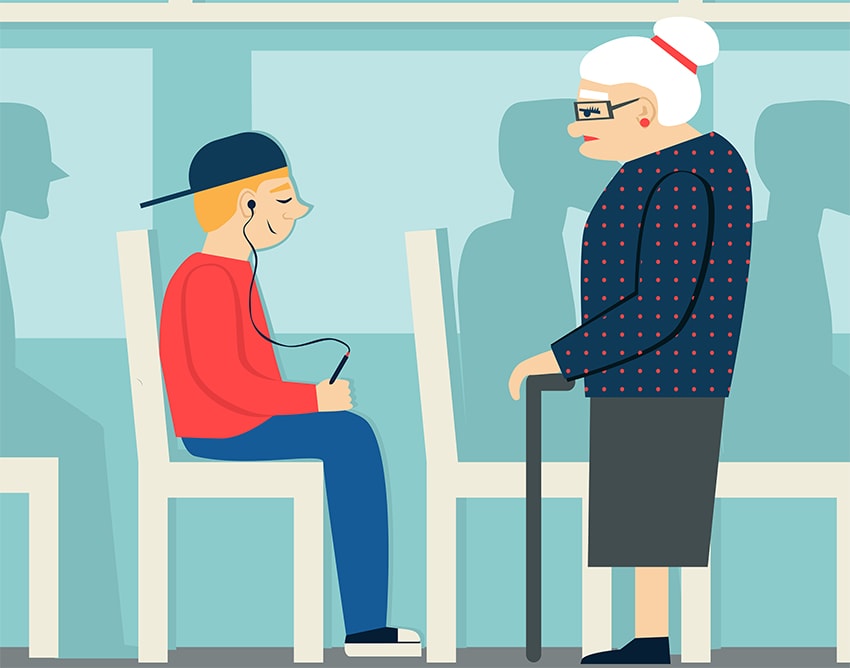The social norms they are rules that are not usually written or explicitly stated and yet they govern behavior within a society. The objective of social norms is to achieve a harmonious coexistence. For example: greet those present when arriving at a place, do not interrupt others when they speak, be punctual.
Social norms vary from one society to another, they are already the product of uses, customs and traditions. They are formed over the years and also vary from one generation to another.
There are different social norms depending on the groups to which one belongs. Social norms in a professional setting differ from those governing relationships in friendly settings. Also social norms are very different depending on social class.
If other types of norms are violated, such as legal norms, established by law, the consequence is a formal punishment stipulated by law. However, failure to comply with social norms does not result in a specific sanction. Deviating from the social norm can have consequences of all kinds: losing friends, job opportunities and facing other negative consequences.
Social norms exist in each group because a significant part of it considers them important. Breaking them means going against the customs and values of that group, and therefore it is possible to provoke the rejection of its members.

Types of standards
Social norms are distinguished not only from legal norms (established by the State) but also from norms belonging to specific groups, like the internal norms of a family, or the norms of certain games. There are also regulations in workplaces that may coincide with social norms (such as punctuality) or not (the obligation to wear a helmet).
The behavior of individuals in society is governed by different types of norms:
- Legal norms. They are defined by an authority, usually the State. They include the imposition of a penalty for non-compliance.
- Moral standards. They are dictated by one’s own conscience, based on moral values. They develop from their own experience and the influence of different groups, such as family, religion, school, friends and, indirectly, society as a whole. They are similar to social norms in that non-compliance does not have an institutionalized sanction but it can cause rejection by a group or society.
- Religious norms. They are determined by the interpretation of sacred scriptures that each community makes. When in a society the majority of the population belongs to the same religion, it is common for religious norms to be confused with social norms or even to become legal norms.
- Social norms. Associated with moral norms, but which can contradict the morality of an individual. They emerge from respect for others and harmony in coexistence, in addition to the other moral values held by the groups.

Examples of social norms
- Greet those present when arriving at a place.
- Do not stay too long looking at another person, so as not to make them uncomfortable. This social norm is suspended when a person draws our attention (if he talks to us, if he is putting on a show, if we talk to him, etc.)
- What was a social norm such as not lighting a cigarette without asking others if it bothers them, today has become a legal norm in most of the world’s cities in public places. The legal norm intensified the social norm in private spheres.
- Do not open your mouth to speak while eating.
- Staying clean in public spaces is a social norm that is not met in sports contexts. In those cases, it is socially accepted for players of any sport to be sweaty or even muddy in sports like rugby.
- Do not interrupt others when they speak.
- Avoid profane or obscene language.
- Giving the seat to elderly people, those with a motor disability and pregnant women.
- While a general social norm is not to speak loudly, in certain friendly groups it can be welcomed or even encouraged.
- Not making noise when the night is late is a social norm that is followed on the streets where houses are located.
- Letting women pass before men used to be an unchallenged social norm, but is currently being put on trial.
- Punctuality is a social norm that must be respected in almost any context.
- The makeup of both women and men strictly depends on the customs of each society.
- What is considered appropriate clothing is also a social norm that changes radically in different societies. Even in our society, social norms dictate different types of clothing for different activities and situations.
- Respect for opinions other than one’s own.
